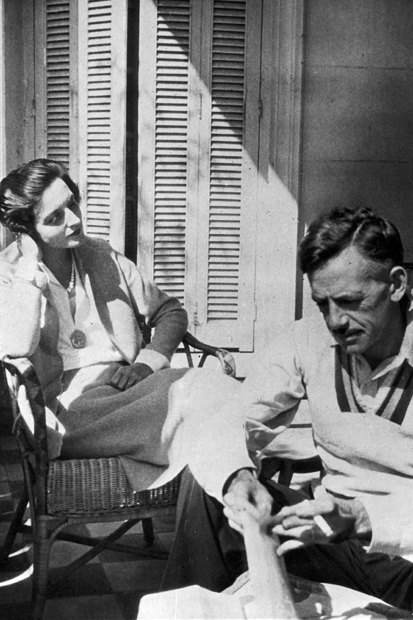George Bernard Shaw called him a ‘Yankee Shakespeare peopling his isle with Calibans’. He was dubbed ‘a fighting Tolstoy’ and ‘the great American blues man of the theatre’. Before he was 35, Eugene O’Neill had emerged as the first real titan of American theatre, a preeminence he has never lost. When Sinclair Lewis was awarded the Nobel Prize in 1930, he responded that they should have given it to O’Neill, because he had done ‘nothing much in American drama save to transform it utterly… from a false world of neat and competent trickery to a world of splendour and fear and greatness’. O’Neill’s struggle to wrench American theatre into splendour, fear and greatness is the subject of Robert M. Dowling’s excellent new life of the playwright, which elegantly balances knowledgeable readings of the plays and their social context with O’Neill’s famously turbulent life.
The ‘false’ world of 19th-century American theatre was one O’Neill knew intimately, and rejected utterly (his father was a famous touring actor who performed in The Count of Monte Cristo over 6,000 times). Repudiating what he called ‘the closed-shop, star-system, amusement racket’ of commercial theatre, O’Neill and a small group of aspiring playwrights and directors founded the Provincetown Players,
to establish a stage where playwrights of sincere, poetic, literary and dramatic purpose could see their plays in action and super-intend their production without submitting to the commercial manager’s interpretation of public taste.
Drawing on the realistic and expressionistic innovations of Ibsen, Strindberg and Chekhov, O’Neill eventually united them with the lessons of tragedy he learned from the ancients in order to explore the psychic and physical suffering of modern life.
His determination to tell the truth about the world he knew revolutionised the American theatre almost single-handedly. He won the Pulitzer Prize three times between 1920 and 1929, and in 1936 became still the only American dramatist to win the Nobel Prize for literature.
His best was yet to come: over the next decade he composed his triptych of acknowledged masterpieces, The Iceman Cometh, A Moon for the Misbegotten and the towering Long Day’s Journey into Night, which many of us still rank as the greatest American play ever written.








Comments
Join the debate for just £1 a month
Be part of the conversation with other Spectator readers by getting your first three months for £3.
UNLOCK ACCESS Just £1 a monthAlready a subscriber? Log in